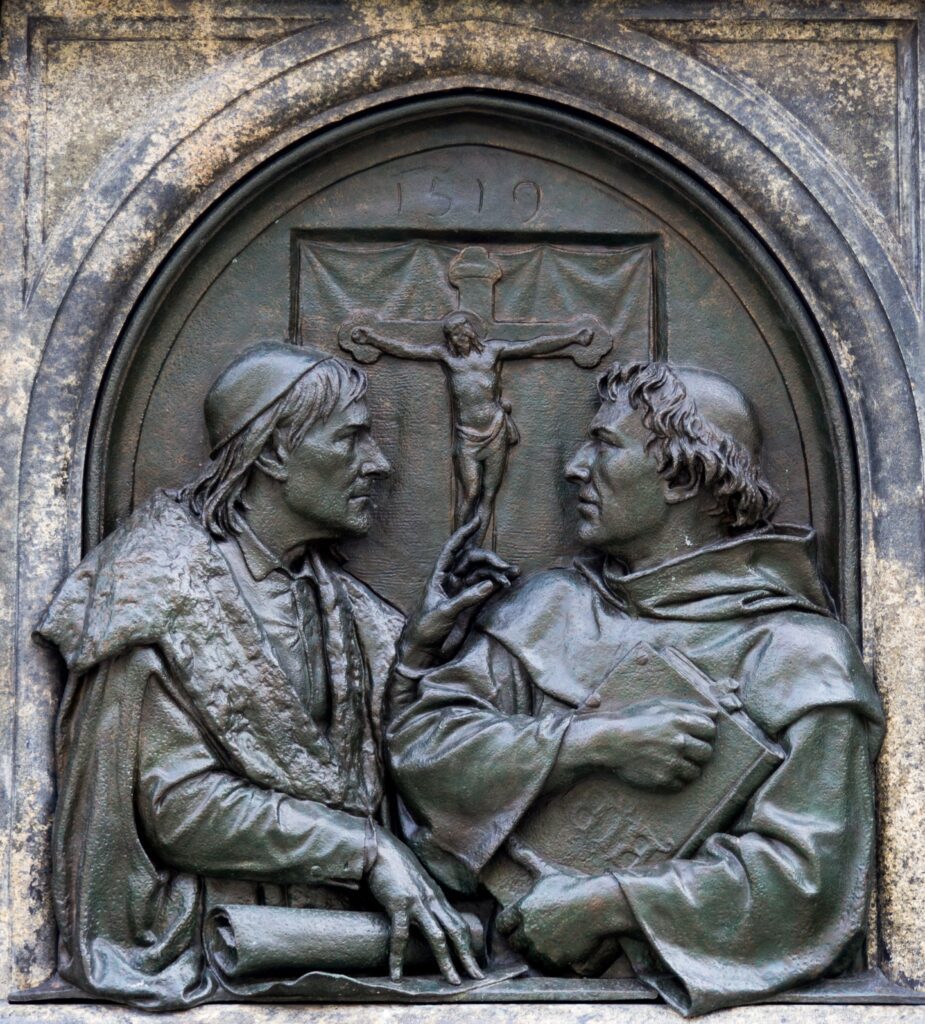⏱️ Estimated Reading Time: 4 min read
When Martin Luther was summoned to the Diet of Worms in 1521 A.D. and asked to recant his teaching, he replied:
“Unless I am convinced by Scripture and plain reason, my conscience is captive to the Word of God. I cannot and I will not recant anything, for to go against conscience would be neither right nor safe. God help me. Here I stand, I can do no other.”
Luther’s well-known formulation, “Scripture and plain reason”, is the only basis on which we can properly ground true spiritual discernment. Discernment is the ability to understand, interpret, and apply truth skillfully. Discernment is a cognitive act. Therefore no one who spurns right doctrine or sound reason can be truly discerning.
Authentic spiritual discernment must begin with Scripture—revealed truth. Without a firm grounding in divine revelation, human reason always degenerates into skepticism (a denial that anything can be known for certain), rationalism (the theory that reason is a source of truth), secularism (an approach to life that purposely excludes God), or any number of other anti-Christian philosophies. When Scripture condemns human wisdom (1st Corinthians 3:19), it is denouncing not reason per se, but humanistic ideology divorced from the divinely revealed truth of God’s Word. In other words, reason apart from the Word of God leads inevitably to unsound ideas, but reason subjected to the Word of God is at the heart of wise spiritual discernment.
The Westminster Confession of Faith clearly recognizes the formula of Scripture and sound reason as the basis of discernment. The Confession states, “The whole counsel of God…is either expressly set down in Scripture, or by good and necessary consequence may be deduced from Scripture” (chapter 1, section 6).
In other words, sound and careful logic must be applied to Scripture to yield a full and mature understanding of the spiritual truth God has revealed. This is no denial of the sufficiency of Scripture. The formula is not Scripture plus philosophy, but Scripture interpreted by careful, sensible, thoughtful, Spirit-directed reasoning. That is the essence of discernment.
In short, anti-intellectualism is incompatible with genuine spiritual wisdom. Those who think of faith as the abandonment of reason cannot be truly discerning. Irrationality and discernment are polar opposites. When Paul prayed that the Philippians’ love would “abound still more and more in real knowledge and all discernment” (Philippians 1:9, emphasis added), he was affirming the rationality of true faith. He also meant to suggest that knowledge and discernment necessarily go hand in hand with genuine spiritual growth.
Biblical faith, therefore, is rational. It is reasonable. It is intelligent. It makes good sense. And spiritual truth is meant to be rationally contemplated, examined logically, studied, analyzed, and employed as the only reliable basis for making wise judgments. That process is precisely what Scripture calls discernment.
God’s truth is a precious commodity that must be handled carefully—not diluted with whimsical beliefs or bound up in human traditions. When a church loses its will to discern between sound doctrine and error, between good and evil, between truth and lies, that church is doomed.
The apostle John drew a very sharp distinction between Christianity and the spirit of antichrist—and he zealously held the line. Anyone who goes too far and does not abide in the teaching of Christ, does not have God; the one who abides in the teaching, he has both the Father and the Son. If anyone comes to you and does not bring this teaching, do not receive him into your house, and do not give him a greeting; for the one who gives him a greeting participates in his evil deeds (2nd John 9-11). Thus, John commanded those under his spiritual oversight to be watchful and discerning—and to have nothing to do with Christ-denying error or the purveyors of it.
Contrast that with Christians today who soothe themselves with the opinion that few things are really black and white. Doctrinal issues, moral questions, and Christian principles are all cast in hues of gray. No one is supposed to draw any definitive lines or declare any absolutes. Every person is encouraged to do what is right in his own eyes—exactly what God forbade (Deuteronomy 12:8; Judges 17:6; 21:25).
The church will never manifest its power in society until we regain a passionate love for truth and a corollary hatred for error. True Christians cannot condone or disregard anti-Christian influences in their midst and expect to enjoy God’s blessing.
“Now it is high time to awake out of sleep: for now is our salvation nearer than when we believed. The night is far spent, the day is at hand: let us therefore cast off the works of darkness, and let us put on the armor of light” (Romans 13:11-12, KJV).
John MacArthur is the pastor-teacher of Grace Community Church in Sun Valley, California, where he has served since 1969. He is known around the world for his verse-by-verse expository preaching and his pulpit ministry via his daily radio program, Grace to You. He has also written or edited nearly four hundred books and study guides. MacArthur serves as the president of the Master’s University and Seminary. He and his wife, Patricia, live in Southern California and have four grown children.




